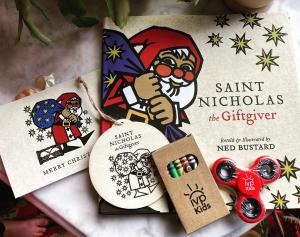Matt would not eat this, of course, even if it were still his birthday.
Well goodness, a whole week has gone swiftly by. Let’s see what we can rustle up.
One
I did not intend to take off blogging yesterday, but I ended up with a foul and terrible headache in the middle of the night, which left me curled in the fetal position scrolling through google on my phone trying to figure out if I was definitely dying, or if this kind of thing happened to other people. The internet told me it was probably a migraine, so that was something. Even so, I couldn’t pull myself together to blog even as it waned, if not absolutely going away. I should have taken something, but I didn’t because I lacked, as my children say, sense. I’m better now, but it was really a most shocking thing to have happen to me. This was my fourth or fifth (I’m losing count already) of these kinds of headaches in about two years, and more googling taught me that it’s apparently very normal for someone of my age and situation, and that, if I just wait a while, maybe they will go away with the last of my remaining hormones (of which there are barely any so it should be any minute now).
Two
What I had wanted to blog about was that it was Matt’s birthday yesterday, the one where he turned fifty, and I had wanted to say how much I’ve enjoyed being married to him, and how grateful I am that he is the person he is, and a lot of other things like that. I had thought of trying to do 50 things about Matt that I’m happy about, but they all began to be the same thing, which is that I’m basically just happy about him. He’s so clever and makes life so interesting. As you can see, I can’t think clearly because the headache still lurks behind my eyes.
Three
I’m reading two Christopher Lasch books at the same time (depending on which room I’m in), one about the family (I think I’ve blogged about it already), and one about women–Women and the Common Life: Love, Marriage, and Feminism. I’m going too slowly through both, but the first chapter of the women one has been most instructive. I didn’t really know, for example, that through most of western history up until the 17th century and the proto-feminism that began to take shape then, that lots of people believed that marriage signaled the death of love. You didn’t marry for love, as is true around much of the world today–you married for economic and social reasons–but you still sometimes “fell in love.” If you were so unfortunate as to be “in love” with the person to whom you were going to be married, that meant that you would stop being in love and start being jealous and all that kind of thing. I am, of course, muddling it, because reading with a migraine is not a very clever thing to do.
The place I grew up had a special word for people who married for love. Can’t think what it is, but it was unusual enough to have its own linguistic marker. And honestly, though Americans think they marry “for love,” I don’t think they do. People marry “for love,” and then marry again “for love” and then again. The “for love” masks the more essential reason for doing anything which is “for myself.” I saw some foolish person saying that it is ridiculous to think that you could go on married to only one person for eighty years. If we only lived to be 40, “lifelong” monogamous marriage would be obvious because of how short the “life” part is. But now that we live to be a hundred, we shouldn’t burden ourselves with the unnecessary trouble of having to be with one person that long.
All this makes me feel indeed very fortunate, or even #blessed, to get to be married to someone with whom I am “in love,” with all expectation and happiness of going on in that condition for another 50 years at least. And the thing I like most is that as I go on, watching this person get older every year, he gets more peculiar, more strange, more idiosyncratic, not less so. Matt is the strangest, most fascinating person I know.
Add to that, he is a brilliant preacher. In fact, his preaching is one of the reasons I’ve been able to still be a Christian over the last ten years. I mean, imagine marrying someone who climbs up into the pulpit every week, and not having to steel yourself for what he may be about to say, or how ineptly he may be about to say it. Instead, week after week, that single hour is the one where I am most able to relax, to know that I will have the scriptures opened out to me and made inhabitable. Some people say that a church can’t “mature” beyond the spiritual maturity of the pastor (I don’t know if this is true or not, but I’ve heard it said sometimes), and certainly, I don’t think that the wife and children of a man can very easily grow spiritually beyond him. They can but it is very hard. I am, therefore, so grateful to be married to someone who advances out into the spiritual realm of scripture, and grows, and strives, and studies, and does not grow weary of doing good.
Four
A clever and wonderful person pointed me to this excellent and long piece. It is a brilliant explanation of why the evangelical world is being split apart. It says what I have been trying to say, without knowing it, over the last many months. Especially this:
For those who would subordinate the theological to the social, to the extent there is anything “true” in religion, it is “a ‘private’ value” which leaders may sometimes invoke politically “to overcome the antimony of a purely instrumental and goalless rationality, which is yet made to bear the burden of ultimate political purpose.”[15] Religious language and concepts, in other words, should be confined to the realm of ceremony and solemnity, and otherwise evacuated of any real meaning that might inform substantive decision-making. On this view, the natural destiny of “good religion”—as opposed to bad, authoritarian religion—is to “evolv[e] to a true self-recognition of its own marginality.”[16]
As theologian John Milbank is keen to point out, this stance is not in any sense “neutral.” Rather, it is profoundly theological in its own way, reflecting a “‘liberal protestant metanarrative’ that ‘encompasses’ the specificity of the Christian religion (which lets religion be truly religious) and releases the other cultural spheres to their own autonomy.”[17] Religion, that is, is at its “best” when it has the least impact on anything significant in the real world. Under modernity, for proponents of this view, “[w]hat has declined is merely the improper influence of religion in the public sphere, and the institutional and ritual ‘trappings’ of religion. But true religion, the ‘religion of the self’ and of experience, may flourish as never before.”[18]
Such a stance, in short, reflects a very particular view of what religious belief ought to be: a view where theology allows social science to take the analytical wheel, relegating itself permanently to the intellectual backseat. To the extent that the language and imagery of traditional belief can be creatively pressed into the service of social-scientific conclusions, it is to be valued; where theology stands in the way of progress, it ought to yield.
The shape of this argument should be familiar to elite evangelicals—after all, it precisely describes the structure of both Jesus and John Wayne and Taking Back America for God. Both volumes are keen to deny that “bad” (viz. illiberal or non-progressive) theological claims are actually products of sincere Christian piety, preferring instead to attribute these claims to darker forces. For du Mez, “militant masculinity (and a sweet, submissive femininity) . . . remain[ed] entrenched in the evangelical imagination, shaping conceptions of what was good and true.”[19]
I mean, you should read the whole thing, because it aptly describes the trouble we are in. It is why the divide is getting sharper, why common cause is increasingly being made between theological groups that otherwise wouldn’t have much to do with each other. It is a great realignment, and I welcome it wholeheartedly.
Five
On another note entirely, I got this in the mail:
If you’re thinking about Christmas already, I recommend it very much. Funnily enough, as a young mother, and partly because I was married to Matt all that time ago, it did not occur to me to join Santa Claus together with St. Nicholas. It would have made all the sense in the world, but I was unable to because Matt carefully explained to the children every year that Santa Claus was a fat fairy who magically went around the world on Christmas Eve giving presents to everyone, including putting Baby Jesus in the manger for Mary and Joseph. These kinds of madnesses come over him from time to time, and I am left to cope with them however I can. In this case, I coped by keeping Saint Nicholas Day on the 6th completely separate from Christmas. Saint Nicholas comes to the church to give oranges and chocolate to the children and to our house to put chocolate and oranges in the children’s shoes. These oranges in no way resemble the oranges that appear in the stockings of the children, which are nothing like the shoes they leave out on the 6th. It is very complicated and I recommend that you read this book and just make it all much simpler for yourself.
Six
Wonderfully, Matt was given a Joel Osteen Inspiration Cube for his birthday:
He set it up in the kitchen so we can all listen to it whenever he likes, which is whenever he is in there for any reason. I wanted to hurl it out of the window when Joel announced loudly to me that “You are healthy. You are powerful” or some such lie. That was the day I was hobbling along most awfully in the aftermath of the headache and I was trying to get through The Secret, which, in case you didn’t know, is one of the most wretched books to come along in a century. It’s probably even worse than Jesus and John Wayne, and as well reasoned. I have much to say about The Secret, but it will have to be another day.
Seven
And now, if you will excuse me, I have to go face the day. Go check out more takes! Kelly’s book launches Today!!
Photo by S O C I A L . C U T on Unsplash















